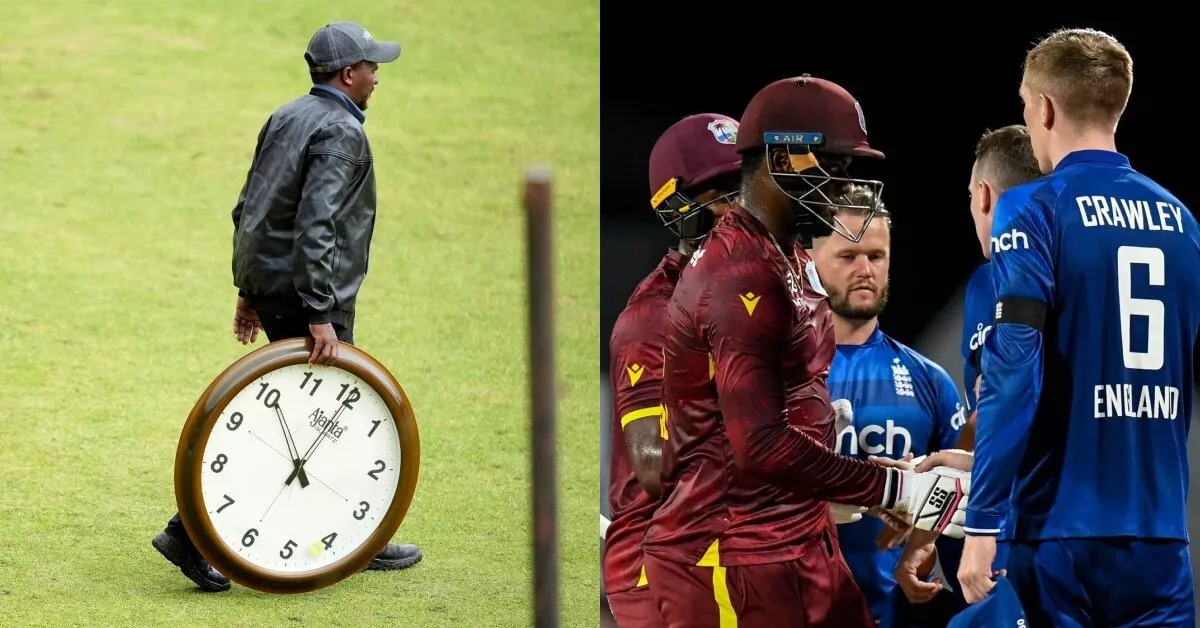The stop clock rule will be permanent in limited overs cricket, including the ODI and T-20 formats. The International Cricket Council (ICC) determined that this rule would be used to manage time in both formats.
Under the stop clock rule, the bowling team will have 60 seconds to start the next over of the innings. Failure to do so will result in a penalty against the team. This rule will be implemented universally with the ICC T-20 World Cup. This means that it will be used in all types of white ball cricket.
Penalty of 5 Runs for Every Third Mistake
The field umpire will issue two warnings to start the over in 60 seconds. If the bowling team makes the same mistake for the third time, it will face a 5-run penalty. The bowling team will then face a 5-run penalty for every third mistake in the innings. That is, if a team takes more than 60 seconds to start an over nine times in an ODI innings, the batting team’s score will be increased by 15 runs.
The Third Umpire Will Start
When the timer runs out, a 60-second countdown will begin on the TV screen installed in the field. The third umpire will start it from the control room. When the 60-second time limit is exceeded, the field umpire will issue a warning to the captain of the fielding team and will follow up on each warning.
This will be exactly the same as now, with both teams having 15 seconds to use DRS. Following the appeal, the third umpire starts the stop clock, which is displayed on the field’s screen. Seeing this, the players decide to take the review.
The Rule Will Become Permanent from The T-20 World Cup
The ICC has decided to make the stop clock rule permanent beginning with the T-20 World Cup in June. If the batsman or DRS causes a delay in starting the over, the umpire has the right to stop the stop clock, so that the fielding team is not penalized by mistake.
Trial in T-20 Format Was Started in December
The International Cricket Council (ICC) initiated the trial of the stop clock rule in December 2023. Then it was only applied in T-20 format. The West Indies and England played the first match under this rule. The rule was supposed to be tested by April of this year, but after seeing the positive results, the ICC decided to make it permanent beginning in March.
The ICC board is currently meeting at its headquarters in Dubai. At this meeting, it was decided to make the stop clock rule permanent. This will apply not only in T-20 but also in the ICC’s ODI format. It was designed to manage time in both formats. In Test cricket, teams are deducted points for the World Test Championship for failing to complete the over-rate.
There Will be No Discussion on The Venue of Champions Trophy
The International Cricket Council (ICC) initiated the trial of the stop clock rule in December 2023. Then it was only applied in T-20 format. The West Indies and England played the first match under this rule. The rule was supposed to be tested by April of this year, but after seeing the positive results, the ICC decided to make it permanent beginning in March.
The ICC board is currently meeting at its headquarters in Dubai. At this meeting, it was decided to make the stop clock rule permanent. This will apply not only in T-20 but also in the ICC’s ODI format. It was designed to manage time in both formats. In Test cricket, teams lose points in the World Test Championship if they do not complete the over rate.

